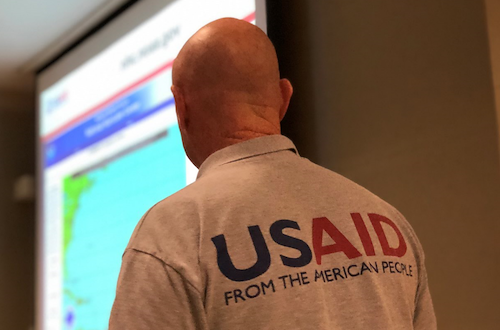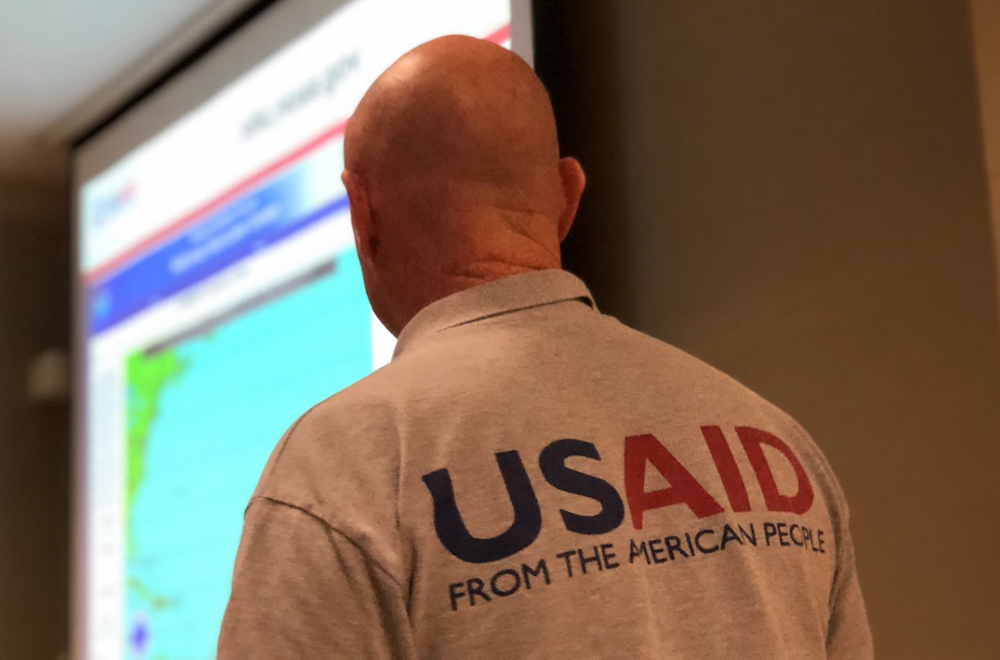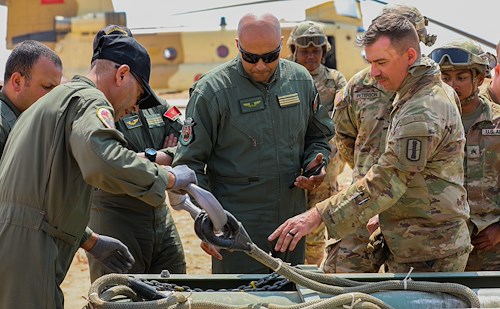Gallery contains 1 image
×
Photo 1 of 1
USARAF benefits from Joint Humanitarian Operations Course
Photo by: Capt. Jonathon Daniell
VICENZA, Italy - “We don’t want the first time we talk to be in a disaster zone,” said Dan Trusilo, Humanitarian Assistance Advisor at United States Africa Command.
Trusilo and a team of U.S. Agency for International Development (USAID) advisors taught Soldiers assigned to United States Army Africa (USARAF) the basics on how and why the Office of U.S. Foreign Disaster Assistance (OFDA) leads U.S. government responses to foreign disasters Sept. 12-13 in Vicenza, Italy.
During the two-day course, students developed a better understanding of U.S. foreign disaster response, the coordination between different levels of government and non-governmental organizations, and how the Department of Defense assists when called upon.
“I think the course gives an important perspective for the USARAF staff because it helps us appreciate the complexity involved in disaster response operations,” said Sgt. 1st Class George Myers, an operations noncommissioned officer in the civil-military operations directorate.
Trusilo explained there are layers and categories to every disaster. While there may be around 300 declared disasters globally every year, OFDA typically responds to approximately 70 of those, and the DOD just a fraction of the time - generally in the single digits.
The disparity between the numbers lies in need, Trusilo clarified. OFDA gets involved when the disaster exceeds the response capacity of the host government, the host government requests or is willing to accept assistance and it is in the U.S. government’s interest to respond.
According to Trusilo, DOD is usually a last resort due to the auspice of neutrality, impartiality and independence that humanitarians work under. However, he acknowledged there are times when the military provides a unique capability that can’t be met by other entities and the disaster is such that it requires immediate action. Under those circumstances, the DOD is called and the need is always dire.
Those instances are often manifested in vertical airlift support or transportation requests that enable aid workers to provide assistance to those people most in need, often in difficult to reach locations.
U.S. Army Africa has a vested interest in educating their staff in humanitarian aid work, as the majority of international disasters the U.S. responded to in 2017 occurred in Africa. Moreover, USARAF holds an annual scenario-based exercise, Judicious Response Epic Guardian, that trains its team on standing up a joint task force to support disaster response contingencies.
As the USARAF staff continues to train and prepare for this year’s exercise, Trusilo provided some advice on what Soldiers can do during other missions on the continent to promote positive civilian-military relationships.
“Soldiers can use their influence to promote civ-mil best practices when working with host nation militaries. Demonstrating respect for humanitarian principles and international humanitarian law, and exemplifying good behavior. Setting a good example cannot be overestimated.”
The JHOC optimizes learning by incorporating case studies and experienced instructors. Teaching alongside Trusilo was Dr. Jeff Miller, OFDA humanitarian assistance advisor at U.S. European Command; Marybeth McKeever, OFDA regional advisor for south and west Africa; and Kat Echeverria, USAID's Office of Food for Peace representative.
The JHOC is taught over 100 times a year across every combatant command to ensure networks are built between DOD and humanitarian aid workers, ensuring the first time the two groups cross paths isn’t in a disaster zone.
For those seeking joint military credit, the JHOC awards .5 points under the education category. For additional information on upcoming class dates or to request a course for your unit, write to JHOC@usaid.gov.








